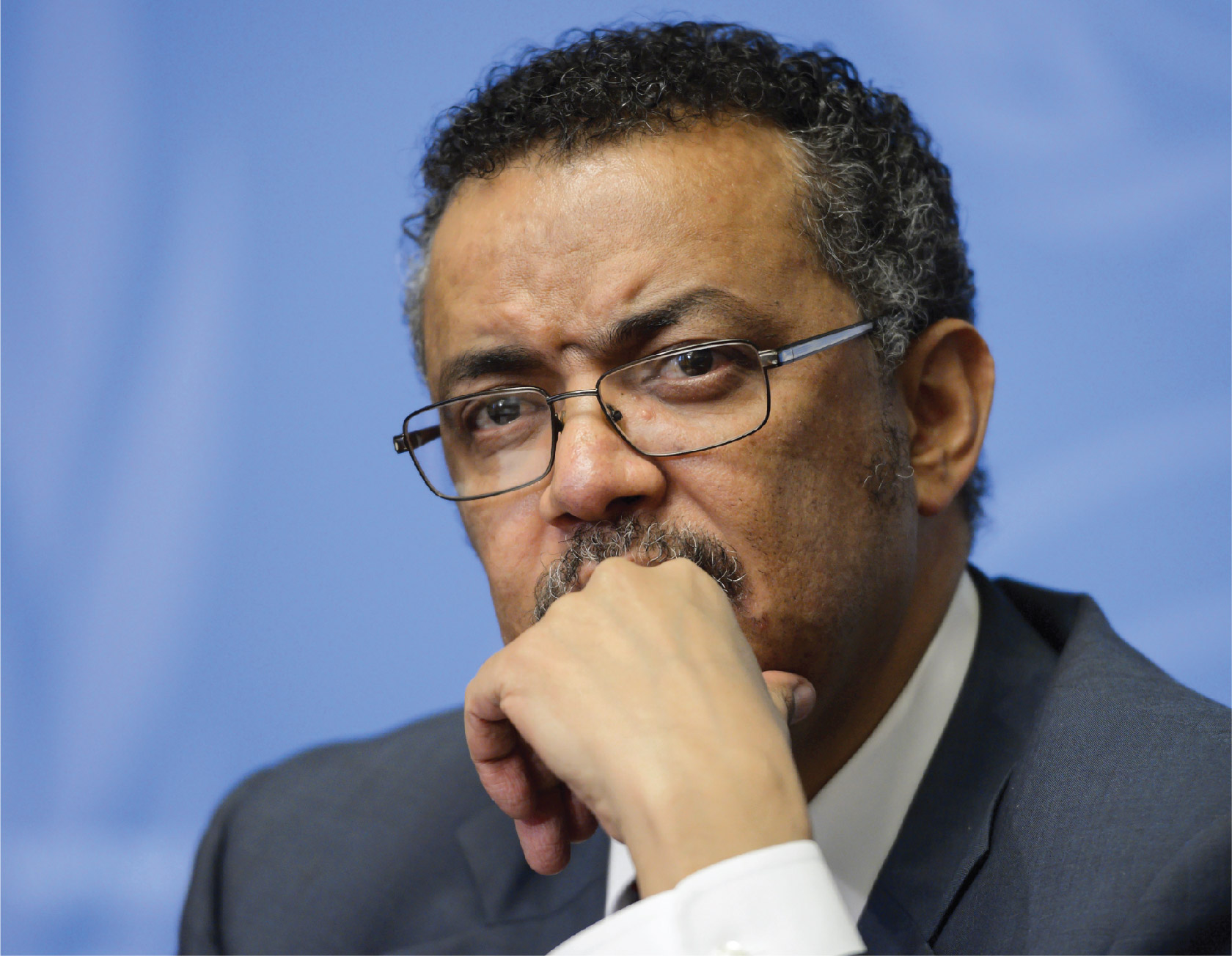INJUSTICE: More than 5.7 billion doses administered globally, but only 2% reached Africa, according to WHO director-general Dr Tedros Ghebreyesus (left)
As you know, WHO’s global targets are to support every country to vaccinate at least 40% of its population by the end of this year, and 70% of the world’s population by the middle of next year.
So far, just two countries in Africa have reached the 40% target, the lowest of any region. As I said last week, that’s not because African countries don’t have the capacity or experience to roll out vaccines. It’s because they have been left behind by the rest of the world.
More than 5.7 billion doses have been administered globally, but only 2% of those have been administered in Africa. This leaves people at high risk of disease and death exposed to a deadly virus against which many other people around the world enjoy protection.
This doesn’t only hurt the people of Africa, it hurts all of us. The longer vaccine inequity persists, the more the virus will keep circulating and changing, the longer the social and economic disruption will continue, and the higher the chances that more variants will emerge that render vaccines less effective.
It was to avoid this situation that WHO, Gavi, CEPI and UNICEF established COVAX last year, to accelerate the development and equitable distribution of vaccines. So far, COVAX has shipped more than 260 million doses to 141 countries. But as you know, COVAX has also faced several challenges, with manufacturers prioritizing bilateral deals and many high-income countries tying up the global supply of vaccines.
Last year, the African Union established the African COVID-19 Vaccine Acquisition Task Team, or AVAT, as a compliment to COVAX to purchase vaccines for AU Member States.
I would like to thank my friends and colleagues here today – Strive, John, Vera and Benedict – for their leadership of AVAT, and acknowledge the role of President Cyril Ramaphosa in initiating AVAT as Chair of the African Union. Yesterday and today, we had a very constructive meeting between partners from COVAX and AVAT to agree on a way forward.
Vaccine inequity is a solvable problem. We call on manufacturers to prioritize COVAX and AVAT; We call on countries that have already achieved high coverage levels to swap their near-term vaccine deliveries with COVAX and AVAT;
To fulfil their dose-sharing pledges immediately; And to facilitate the sharing of technology, know-how and intellectual property to support regional vaccine manufacturing.
We call on all countries and manufacturers to share information on bilateral deals with COVAX and AVAT so we understand where vaccines are needed most; And to share information on supply and delivery projections so countries can be ready to immediately roll out vaccines when they land; And we call on all countries to recognize all vaccines with WHO Emergency Use Listing.
I may sound like a broken record – I don’t care. I will continue to call for vaccine equity until we get it. But you don’t just have to hear it from me. Today I’m honoured to be joined by several leading voices to talk about how COVAX and AVAT are working together to achieve our shared vaccination targets in Africa.
First, I’m very pleased to welcome Mr Strive Masiyiwa, the African Union’s Special Envoy for COVID-19. Strive, thank you for joining us, and for everything you’re doing with AVAT to deliver vaccines to Africa’s people as soon as possible. Thank you for your leadership. You have the floor.
*Dr Ghebreyesus delivered the Covid-19 overview at a media briefing on Wednesday
WHO’S VACCINE PROGRAMME OVERVIEW
• WHO’s global targets are to support every country to vaccinate at least 40% of its population by the end of this year, and 70% of the world’s population by the middle of next year. So far, just two countries in Africa have reached the 40% target, the lowest of any region. More than 5.7 billion doses have been administered globally, but only 2% of those have been administered in Africa.
• The longer vaccine inequity persists, the more the virus will keep circulating and changing, the longer the social and economic disruption will continue, and the higher the chances that more variants will emerge that render vaccines less effective.
• So far, COVAX has shipped more than 260 million doses to 141 countries.
But as you know, COVAX has also faced several challenges, with manufacturers prioritizing bilateral deals and many high-income countries tying up the global supply of vaccines.
• Last year, the African Union established the African COVID-19 Vaccine Acquisition Task Team, or AVAT, as a compliment to COVAX to purchase vaccines for AU Member States. Yesterday and today, we had a very constructive meeting between partners from COVAX and AVAT to agree on a way forward. Vaccine inequity is a solvable problem.

































